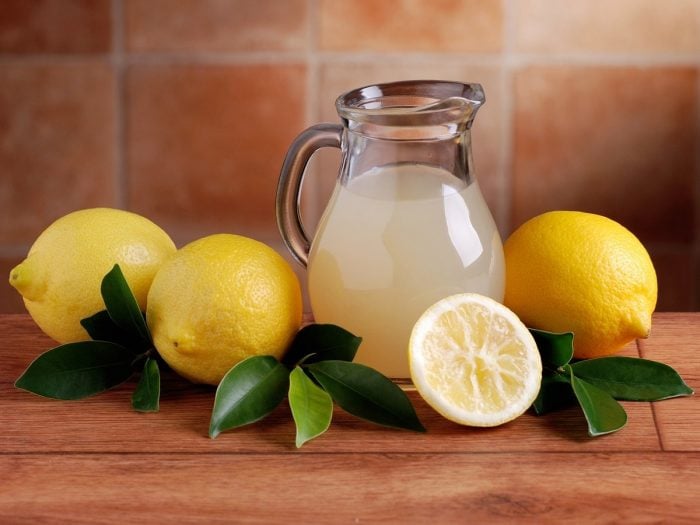Citric acid is often used as a preservative in drinks, canned food, and sweets. It is also used to make cheese and jam, working to coagulate the milk and activate the pectin in jam. It often plays a significant role in a recipe and it is not advisable to simply leave it out. Having knowledge of good citric acid substitutes is important if you spend a lot of time in the kitchen! [1]
Thankfully citric acid substitutes are relatively easy to find and can replace this mild, water-soluble acid that occurs naturally in many sour-tasting fruits and vegetables.
Citric Acid Substitutes
Luckily, there is a range of citric acid substitutes, including lemon juice, tartaric acid, white distilled vinegar, and vitamin C, among others.
Lemon Juice
This common household fruit juice is a great substitute for citric acid, offering a similarly sour flavor with additional vitamin C. On average, there are 3 grams of citric acid in one juiced lemon. Add 4-5 tablespoons of lemon juice per 1 tablespoon of citric acid powder. If using lemon as a substitute, it may be worth slightly reducing other liquid ingredients in order to maintain the overall consistency of the recipe. [2]

A jug filled with lemon juice Photo Credit: Shutterstock
Tartaric Acid
Often used as a souring agent in wines, this grape-sourced acid is also sold as a powder. The acidic taste is stronger and a reduced amount is recommended: begin with half of the amount listed for citric acid and increase according to taste if needed. For the substitution of citric acid, it is important not to confuse tartaric acid with cream of tartar, as the first is water soluble and the latter is not.
White Distilled Vinegar
Vinegar is an acetic acid which is mild like citric acid and as a substitute offers a similarly sour flavor. Start by tripling the amount of vinegar for the citric acid in the recipe and add more to taste. Although it is possible to use other vinegar types, be aware that stronger vinegar may change the overall taste of your dish. Like lemons, you will want to reduce other liquids in the recipe so as to maintain the overall consistency of the dish. [3]
Vitamin C
Crushed vitamin C tablets can be a preservative substitute for citric acid, and can provide a sour tang in simple recipes. It is possible to substitute these two at a 1:1 ratio.
Although also present in citrus fruits and vegetables, vitamin C is not technically known as citric acid, but rather an ascorbic acid. However, in some cases, the two different acids can perform similar functions in recipes. [4]
